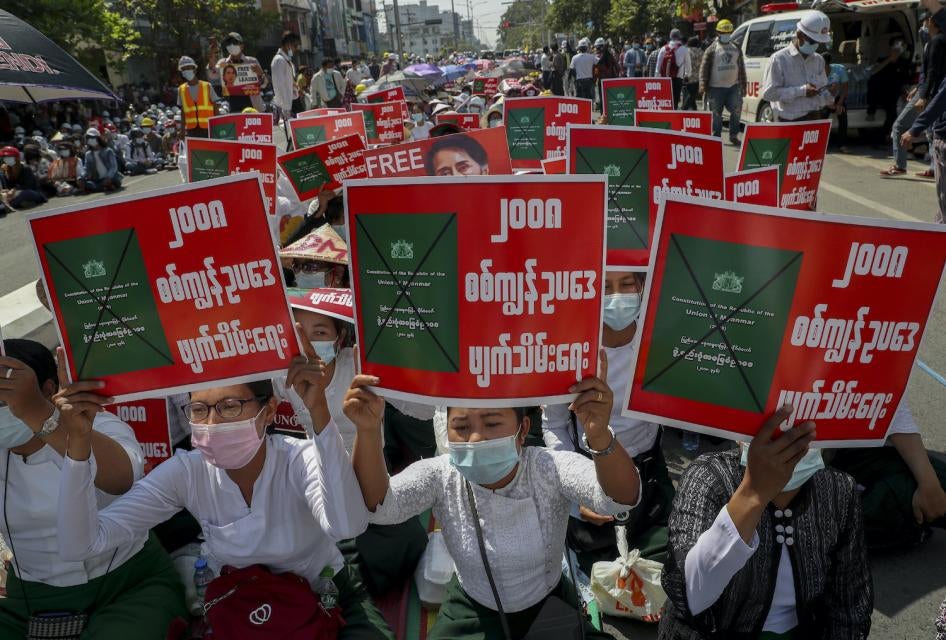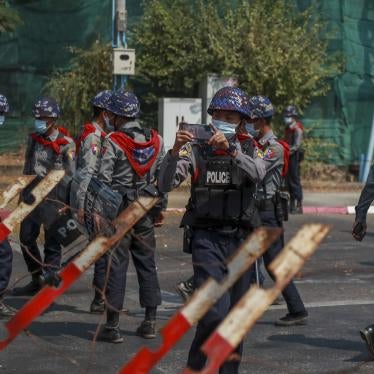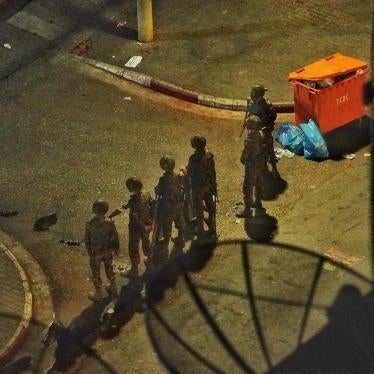Every morning, there is a moment of anxiety as I check to see what has happened overnight in Myanmar. Who has been arrested? Who has been killed? Are they someone I know?
Since the Myanmar military seized power on February 1, millions have taken to the streets in anti-coup protests to demand that their elected leaders be reinstated. March 3 was the most deadly day yet as the security forces again used live fire, teargas and sound and stun grenades against largely peaceful protesters, killing 38 and injuring hundreds. The total death toll is now at least 79, at least four of them children.
Security forces have arbitrarily arrested activists, journalists, civil servants and politicians, and conducted terrifying raids on people’s homes. At least 2,139 are detained, the vast majority without charge. Some are feared to be forcibly disappeared as their families have not been told where they are.
The intimidation and harassment by the security forces is relentless, yet countrywide strikes and anti-coup demonstrations continue.
After living under five decades of brutal military dictatorship between 1962 and 2011, Myanmar’s people understand one thing: if they can cripple the economy, they can cripple the military.
In defiance of the military coup, some elected members of parliament from Aung San Suu Kyi’s National League for Democracy have formed an alternative government to counter the junta’s rule. On March 4, they called for “robust targeted sanctions – not only on military leaders but on military enterprises and assets” in reaction to the previous day’s violence on protesters. Civil society groups in Myanmar have been calling for targeted sanctions against junta leaders since the start of the coup. The local group Progressive Voice Myanmar has said, “The time for soft diplomacy has long run its course, and global condemnation for the military’s actions must be turned to action.”
Western governments including the UK, US, Canada, New Zealand and the EU and its member states have responded to the overthrow of the elected government by expanding their targeted sanctions against coup leaders or suspending military ties.
On March 7, Australia finally announced it was suspending its defense cooperation with Myanmar, but so far it has not announced any targeted sanctions.
The Australian government fears that if Myanmar is pushed too hard by Western governments it will fall into China’s orbit. But this is overly simplistic. Myanmar’s fear of reliance on China for investments and foreign currency was an important part of what ultimately led the generals to open up the country a decade ago. China funds substantial weaponry to ethnic armed groups that have been at war with Myanmar’s military for decades, and keeps the China-Myanmar border open to allow some of those groups to operate. China also cultivated a friendly relationship under Aung San Suu Kyi’s leadership, opening many doors for legal if controversial investments. China won’t want any disruptions to substantial investments in Myanmar that are tied to their global Belt and Road Initiative.
Australia has an arms embargo on Myanmar, but it should also encourage other UN member countries to join the push for a global arms embargo. Most important, Australia should immediately impose targeted sanctions on the senior military leaders responsible for the junta’s abuses, including the killing of protesters on Myanmar’s streets. Targeted sanctions against individuals such as Sr. Gen. Min Aung Hlaing should include travel bans and freezing of private assets and businesses. Imposing targeted sanctions reinforces Australia’s unity with other like-minded countries that have already made these efforts, such as Canada, the United Kingdom and the United States.
Sanctions will only be effective if governments take a coordinated and unified approach. Failing to act quickly will risk legitimizing and further entrenching a military junta that has refused to respect the human rights or dignity of the country’s people.
People in Myanmar are risking their lives every day to challenge military rule. Australia should take concrete actions in response to the calls of people of Myanmar to help cripple the military’s revenue sources and to ensure a return to civilian democratic rule.










